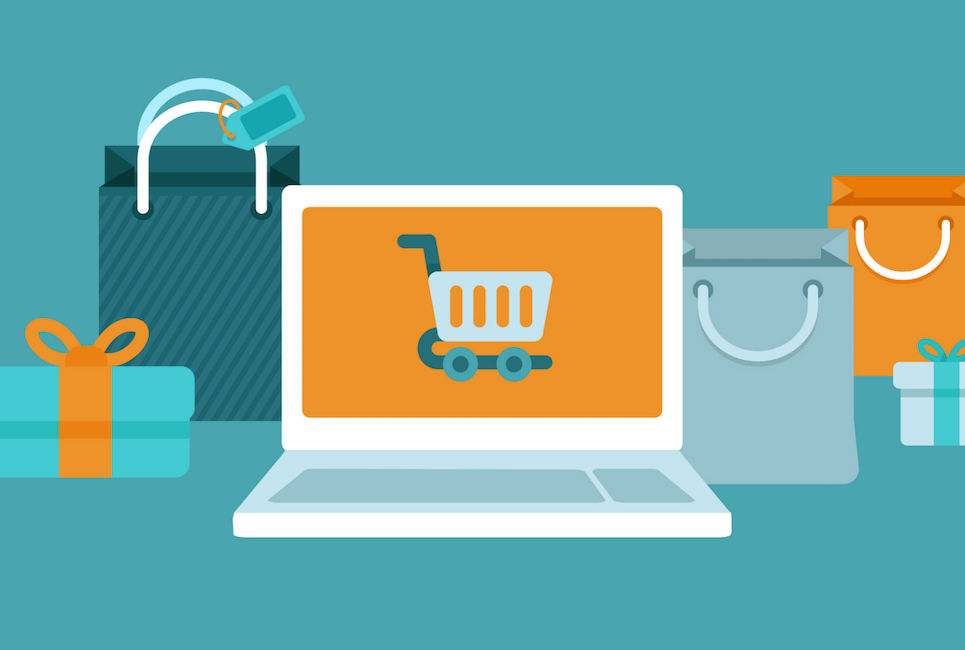
Why is it important that you find the best online storefront builder?
If you owned a store in real life, you’d likely spend a lot of time making sure it looked just right. First impressions count. What your customer sees as they first enter your store is incredibly important, along with how easy it is to navigate. If they find it dreary, or boring, or it has a confusing layout, they’re more likely to leave without making a purchase.
The same goes for eCommerce. How your website looks – and functions – is key. The most successful online businesses make sure that their customers will find it as simple to use their store as possible. The easier you make it for your customer to checkout, the better. That doesn’t mean your store has to be boring – you can still inject a lot of personality into your store, creating a rapport with your customers.
You can achieve this with a good online storefront builder. The right tools will help you to build a professional, functional, and easy-to-navigate website that fits with your brand and encourages customers to shop with you.
We’ll take a look at some of the best storefront builders out there, looking at their pros and cons, so that you can find the right one for your business.
What Should You Look for in an Online Storefront Builder?
There are a few features you should consider when you’re looking for the perfect storefront builder:
A Range of Page Types
You may want more for your website than a collection of product pages – you might want to build landing pages, about pages, FAQs, or even a blog. A good storefront builder should give you the choice of building a variety of pages.
Templates
A good storefront builder will provide you with a range of pre-made templates, covering different types of businesses, so that you can find one that suits you. They should also offer you the option of building your pages from scratch.
Page Editing
Some eCommerce platforms don’t allow you much control over how your pages look. There are many out there that offer drag-and-drop builders that allow you to tweak each page to look exactly the way you want it to, even if you don’t have a lot of technical knowledge.
Extras and Plugins
Some storefront builders offer extra features. These could include basic email marketing, coupons for your customers, or analytics so you can study how well your pages are performing.
Integrations
Some storefront builders offer integrations with other apps, like social media or email marketing platforms – for example, you may be able to include a sign-up form for your MailChimp email newsletter.
The Best Online Storefront Builders
Here’s an overview of the storefront builders we’ll be looking at today:
|
Name |
Features |
Pricing |
|
|
|
Basic – $29 per month
Shopify – $79 per month Advanced Shopify – $299 per month |
|
Build – $39 per month
Measure – $99 per month Optimize – $149 per month |
|
|
BigCommerce |
|
Standard – $29.95 per month
Plus – $79.95 per month Pro – $249.95 per month |
| WooCommerce |
|
Free (but need WordPresssubscription) |
|
3dCart |
|
Startup – $19 per month
Basic – $29 per month Plus – $79 per month Pro – $299 per month |
|
Yahoo! Stores |
|
Basic – from $10.95 per month
Standard – from $25.95 per month Professional – from $254.95 per month |
|
Kartra |
|
Starter – $99 per month
Silver – $199 per month Gold – $299 per month Platinum – $499 per month |
|
PageFly |
|
Free – $0 per month
Pro – $9.95 per month Premium – $29.95 per month |
|
Pro – $99 per month
Premium – $199 per month |
|
|
Standard – $37 per month
Pro – $79 per month Advanced – $321 per month |
We’ll mainly be focusing on the storefront building aspect of each platform, but we will give a quick rundown of some of the other features they have to offer.
Shopify
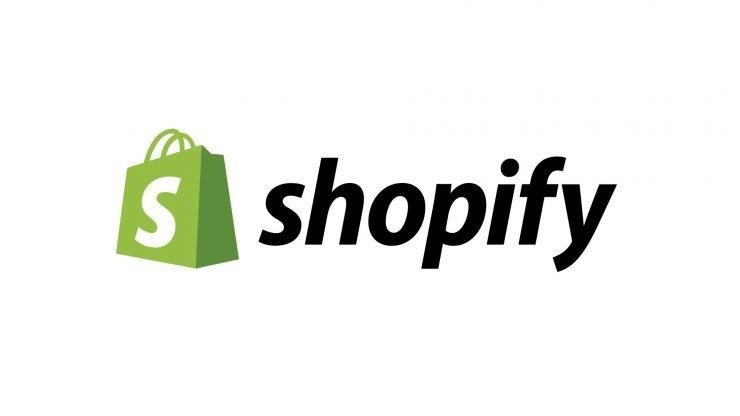
Shopify has a lot to offer – including a secure shopping cart with zero transaction fees, automatic store backup, and a lot of security features, so you know your customers will have a safe shopping experience with you. It’s cloud-based, so you can work on your store wherever you go.
One of Shopify’s strengths is the product management system – you can easily upload, edit, and organize your products.
When it comes to templates, Shopify offers a range of beautiful options, both free and paid:

You can design pages and add a blog – however, it’s not the best page builder out there in terms of ease of use. (Apps improve the experience here – more on that a bit later).
In terms of SEO, Shopify has a lot to offer, including custom URLs and adding alt-tags to images.
Analytics-wise, they offer a good overview of how your store is performing. They also have quite a lot to offer when it comes to marketing tools. For example, the Abandoned Cart Recovery is a great tool that will email your customers to remind them to complete the checkout process.
You can change your Shopify experience by adding apps. The Appstore contains a ton of apps for different purposes – page builders, email marketing, custom packaging creators, returns solutions, and more. These vary in price – so while it’s a great way to customize your Shopify experience, if you’re not careful you could end up spending more money than you originally anticipated in running your store.
They have three pricing tiers – the Basic plan at $29 per month, the Shopify plan at $79 per month, and the Advanced Shopify plan at $299 per month. The Basic plan does have quite a lot to offer, including the very useful Abandoned Cart Recovery.
Pros of Shopify:
- Secure payment system
- In-built marketing tools
- In-built analytics
- Good choice of templates
- Many optional apps to choose from
Cons of Shopify:
- Apps can start to add up
- Product pages could look nicer
Shopify offer a free 14-day trial: click here to find out more.
Shogun

Shogun is an app for Shopify, BigCommerce, and Magento, but it makes a huge difference to how your store will look to your customers. It’s a page building app, enabling you to create beautiful product pages, standard pages, blog posts, or product collections.
The templates are great:
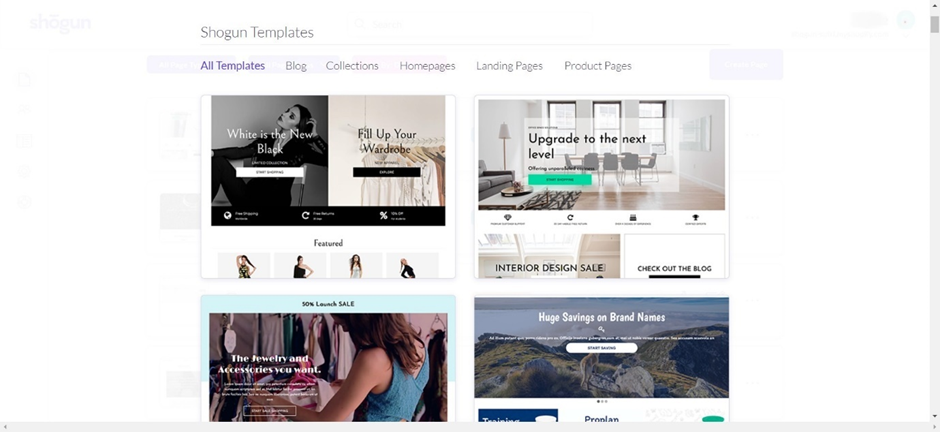
The drag-and-drop page builder is incredibly simple to use and will enable you to create the exact page that you desire for your website.
You can also add a ton of extras to your page – for example, social media buttons, countdown timers, buttons, videos, and images.
What’s great about Shogun is that it offers more than just page building. You can split test your pages – creating two slightly different versions of the same page to see which one performs the best – and it also has its own analytics suite, so you can see exactly how your pages are performing.
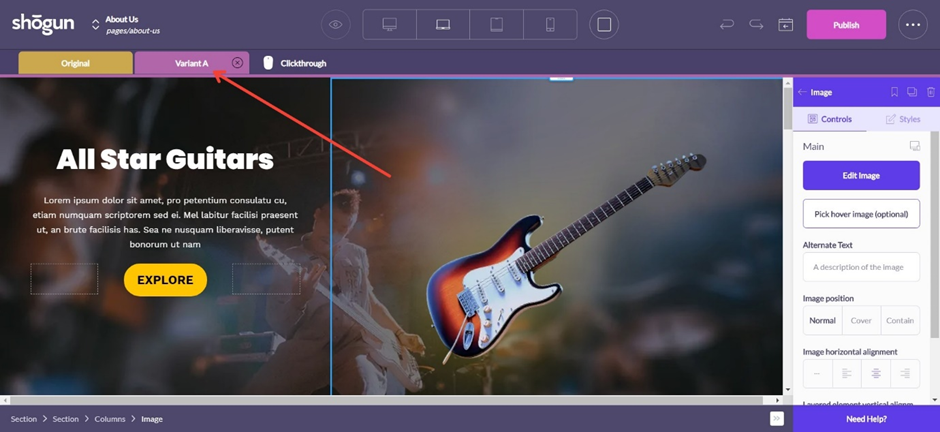
It’s a great app, and it could make a huge difference to the experience your customers can have with your store.
Shogun has three pricing plans: Build, at $39 per month, Measure, at $99 per month, and Optimize, at $149 per month. Analytics become available on the Measure plan, whereas split testing is only available on the Optimize plan.
Pros of Shogun:
- Range of beautiful templates
- Page builder is very easy to use
- Add lots of extras to your page, including social media buttons and videos
- Split testing and analytics are great ‘bonus’ features
Cons of Shogun:
- The price of Shogun together with the platforms it is designed for could be out of reach if you’re on a very tight budget
BigCommerce

BigCommerce is another popular eCommerce platform. It has a lot to offer, including a secure site hosted by Google Cloud platform and advanced SEO and CRO tools (including Abandoned Cart Saver).
What’s good about BigCommerce is the integration with other platforms. Using BigCommerce, you can also set up to sell your products on Facebook, Instagram, eBay, Google Shopping, Amazon, and Square. You can also set up PayPal One Touch – great for enabling your customers to checkout quickly and easily.
When it comes to the storefront itself, there are a lot of templates to choose from:
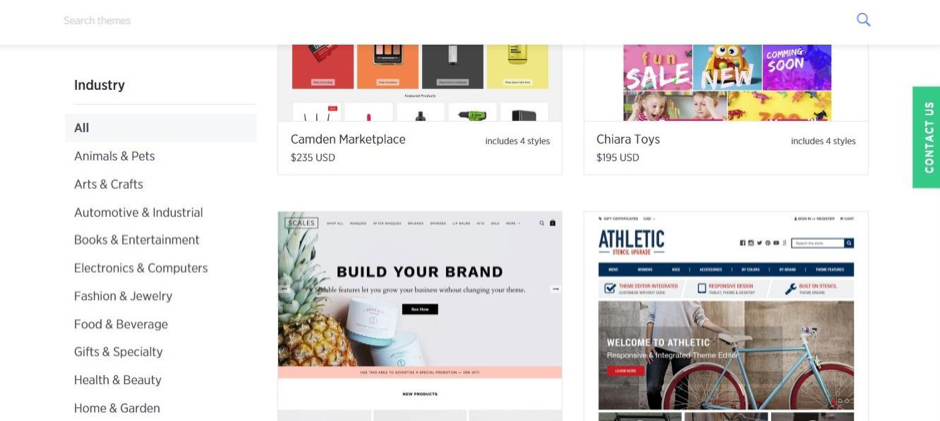
You can tweak the colours and sections of your website, but it’s not the most customizable page builder we’ve seen. If you want more control over the look of your pages, you might be better off looking elsewhere. Still, the whole platform is very easy to use, which is great.
BigCommerce has a lot of great features, too, including coupons, and a basic email marketing system. Having all this in one place is really handy.
There are three pricing plans. The cheapest is Standard at $29.95 per month. Then you have Plus at $79.95 per month, and finally Pro at $249.95 per month. It’s worth noting that some of the extra features, like abandoned cart saver and customer segmentation, are only available on the Plus and Pro plans.
Pros of BigCommerce
- Good integrations
- Pretty straightforward to use
- Good range of premade templates
- Lots of payment options for customers
Cons of BigCommerce
- Not much customization when it comes to storefront
- Some of the best features aren’t available on the cheapest plan
WooCommerce
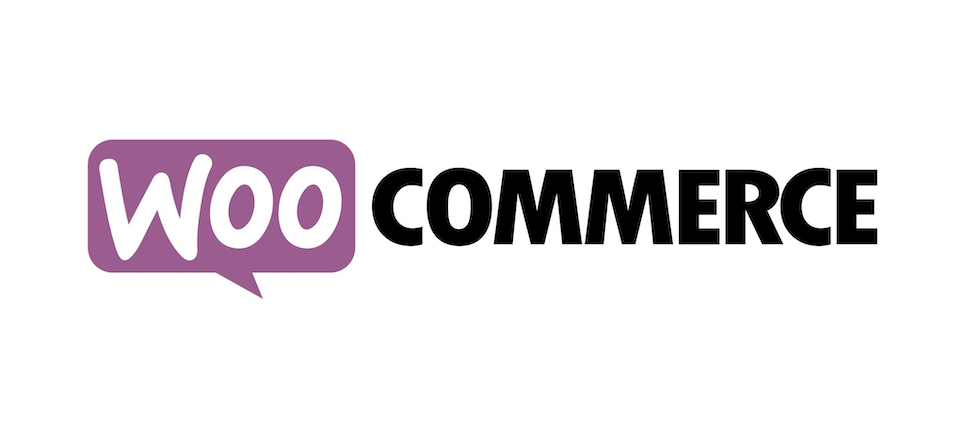 WooCommerce is an app designed for Squarespace, enabling you to turn your website into an online store. It gives you a secure shopping experience for your customers with multiple payment methods, easy stock management, and even a mobile app so you can work on your store wherever you go.
WooCommerce is an app designed for Squarespace, enabling you to turn your website into an online store. It gives you a secure shopping experience for your customers with multiple payment methods, easy stock management, and even a mobile app so you can work on your store wherever you go.
In terms of templates, there are a variety to choose from. The free themes aren’t that great to look at, however. The paid themes are a lot nicer, with some modern and interesting designs to choose from.

You can customize your website, changing images, titles, and content. If you have a bit of coding knowledge, you’ll be able to customize your website a little more. However, if you’re a beginner, you may find the choices that you have a bit limiting.
Like Shopify, WooCommerce offers a range of plugins (some free and some paid) to enhance your store. There are a lot of marketing tools available here, including follow-up emails, email subscriptions, marketing analysis, social media marketing, and coupons and discounts. These are great, but the costs may stack up quickly here.
The reporting is pretty good, and the main draw is that the platform itself is free (minus the cost of being on WordPress) – so that could help to mitigate the costs of the plugins and templates you may need.
Pros of WooCommerce:
- Actual platform is free
- Paid templates are nice
- Plugins give you extra marketing tools
Cons of WooCommerce:
- Plugins and templates can get expensive
- Not much customization when it comes to actual pages
3dCart
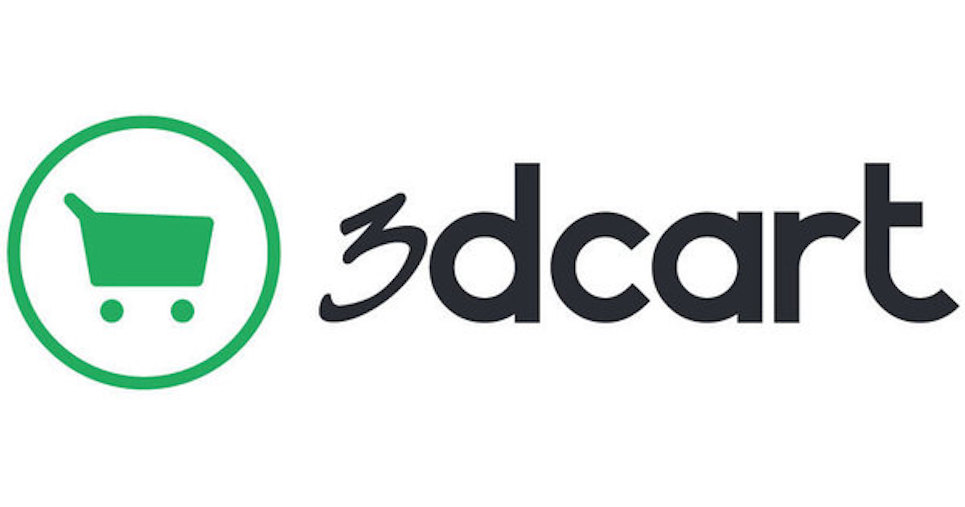 3dCart is another great option. It gives you a secure shopping cart with multiple payment options and simple order processing, including a 1-click printing system for orders.
3dCart is another great option. It gives you a secure shopping cart with multiple payment options and simple order processing, including a 1-click printing system for orders.
The store builder has over 100 themes to choose from:

Some of them are paid and others are free. The themes are not as modern or dynamic as some of the others we’ve seen, but they’re still pretty decent. Unfortunately, the themes themselves are not that customizable – you can play around with the colour scheme and edit the content, but you can’t drag and drop elements to build the page exactly the way you want it.
There is, however, a ‘site content’ area. This allows you to quickly navigate the pages of your website:

You can create a variety of pages, including home pages, blog posts, and terms and conditions. The page editors themselves are quite basic, but they enable you to add text and images.
3dCart offers some great extra features, including customer grouping (you can then go on to offer those customers a specific discount code), create a gift registry, and sell your products on eBay and Amazon.
In terms of pricing, you have four options: Startup at $19 per month, Basic at $29 per month, Plus at $79 per month, and Pro at $229 per month. You can unlock most of the marketing tools and extras on the Plus plan, which is a similar price to some of the other platforms we’ve tried.
Pros of 3dCart:
- Secure cart with a variety of payment options
- Create pages for your website and add content to them
- Decent range of templates
- Extra features, like customer grouping, gift registries, and more
Cons of 3dCart:
- Not much customization of pages
- Some of the better features are only available on the Plus plan
Yahoo! Stores
 Yahoo! Stores has over $70 million in sales under its belt – that’s a pretty impressive amount of products sold through the platform. It’s aimed at small business owners who might be new to the world of eCommerce, and it boasts a secure payment system with PayPal Smart Payment buttons, an inventory management system, and more.
Yahoo! Stores has over $70 million in sales under its belt – that’s a pretty impressive amount of products sold through the platform. It’s aimed at small business owners who might be new to the world of eCommerce, and it boasts a secure payment system with PayPal Smart Payment buttons, an inventory management system, and more.
When it comes to the storefront, there are quite a few templates to choose from:

We weren’t able to fully test Yahoo! Stores, but from reading user reviews, we can see that the pages are customizable to a certain extent. If you’re after a fully customizable website, you’re probably better off with another platform with more of a focus on the storefront itself.
However, if you’re after a basic store builder that will allow you to get up and running very quickly, Yahoo! Stores could be a great choice.
When it comes to pricing, there are three options: Basic, from $10.95 per month, Standard, from $25.95 per month, and Professional, from $254.95 per month. Yahoo! Stores charge you for transaction fees – from 0.75% to 1.5%, depending on which one you choose.
Pros of Yahoo! Stores
- Quick and easy to set up
- Decent range of templates
- Good for beginners
Cons of Yahoo! Stores
- Pages aren’t completely customizable
- You will be charged for transaction fees
Kartra
 Kartra is another great platform that allows you to create an eCommerce business, with a huge range of marketing features to choose from. There are so many extra features, in fact, that we can’t cover them all here. From sales funnels to marketing campaigns, video creation to calendars and scheduling, Kartra has everything you could possibly need.
Kartra is another great platform that allows you to create an eCommerce business, with a huge range of marketing features to choose from. There are so many extra features, in fact, that we can’t cover them all here. From sales funnels to marketing campaigns, video creation to calendars and scheduling, Kartra has everything you could possibly need.
However, how is it in terms of creating an attractive, easy-to-navigate storefront?
You can create a whole range of pages in Kartra, including a video sales page, at hank you page, a coming soon page, blog posts, squeeze pages, live event pages, legal pages, and many more besides.
Kartra has a drag-and-drop page builder, which is great.

There’s a bit of a learning curve involved here, but there’s quite a bit of help and support available if you need it.
In terms of pricing, there are four tiers available: Starter, at $99 per month, Silver, at $199 per month, Gold, at $299 per month, and Platinum, at $499 per month. Obviously, this is the most expensive platform on this list. However, you’re paying for a lot of extra features, so you’ll need to bear that in mind.
Pros of Kartra:
- Lots of marketing features
- Everything in one place, so you don’t have to use multiple platforms
- Lots of templates to choose from
- Drag-and-drop page builder
Cons of Kartra:
- On the pricier side
- Bigger learning curve than some of the others on this list
PageFly
 PageFly is another page building app built for Shopify. It will allow you to build a variety of pages for your Shopify store.
PageFly is another page building app built for Shopify. It will allow you to build a variety of pages for your Shopify store.
 There are over 50 templates to choose from, and they all look great, easy to navigate and professional. Like Shogun, it has a drag-and-drop page builder, enabling you to assemble your pages the exact way you want to, although the interface isn’t as user-friendly as Shogun. You can choose to build regular pages, home pages, collection pages, product pages, password pages, and blog posts.
There are over 50 templates to choose from, and they all look great, easy to navigate and professional. Like Shogun, it has a drag-and-drop page builder, enabling you to assemble your pages the exact way you want to, although the interface isn’t as user-friendly as Shogun. You can choose to build regular pages, home pages, collection pages, product pages, password pages, and blog posts.
You can add a lot of extra features to your pages, including social media buttons, countdown timers, images, and videos. It’s a great way to make Shopify more customizable.
It doesn’t, however, offer much else – it’s really just designed to create pages, without any of the extra features that some of the other platforms on this list have to offer.
It does, however, have the huge advantage of having a free plan, which will allow you to build up to three pages for your Shopify store. There’s also the Pro plan, at $9.95 per month, and the Premium plan, at $29.95 per month. This makes it one of the cheapest options we’re looking at today, although you have to factor the cost of Shopify itself into the equation.
Pros of PageFly:
- Free plan is great for Shopify users who want to create extra pages
- Great templates
- Drag-and-drop builder is easy to use
Cons of PageFly:
- No extra features – it just creates pages
You can find out more about PageFly here.
SamCart
 SamCart is another platform that will help you get set up quickly – you can get going in under half an hour. It offers a secure cart with the option of subscriptions, coupons, and trial offers, detailed analytics, and an affiliate center. It also has the Subscription Saver, helping you to save lost income from cancelled Subscription payments.
SamCart is another platform that will help you get set up quickly – you can get going in under half an hour. It offers a secure cart with the option of subscriptions, coupons, and trial offers, detailed analytics, and an affiliate center. It also has the Subscription Saver, helping you to save lost income from cancelled Subscription payments.
It has a few storefront templates to choose from:

They are, however, pretty bland. They’re a basic way to sell products – as you can tell, they don’t look that great compared to the templates some of the other platforms have to offer. You can customize these pages, but the level of customization is not that extensive – you can change colors and headings, that sort of thing, and obviously adjust the content and add images.
SamCart would be a good choice if you offer subscriptions, as it protects you against lost revenue from failed card payments – however, there are more attractive looking storefront builders out there.
There are two price plans: Pro, at $99 per month, Premium, at $199 per month. Pro contains a lot of the features you’d want, including split testing and 1-click upselling, but the Subscription Saver is restricted to the Premium plan.
Pros of SamCart:
- Good marketing features like 1-click upsells
- Affiliate marketing and Subscription Saver are great features
- Quick to get started
Cons of SamCart:
- Templates are very basic
- Not much customization
SamCart offer a free trial – click here to find out more.
Leadpages
Leadpages is designed to create landing pages and websites. However, you can use Leadpages to create a storefront for your eCommerce business. On the Pro plan, you can sell products online, making it a similar price to some of the other platforms on this list.
Leadpages have beautiful templates:

They are attractive, responsive and look professional. They’d be particularly suited to those selling digital products, like eBooks or PDFs. The page builder itself is really simple to use, again, using a drag-and-drop mechanism to drag blocks of content where you want them. You can also customize colors, headings, etc, and if you know CSS, you can take that customization a lot further.
It’s one of the easiest page builders we’ve tried. You can create whole websites with Leadpages – so no matter what content you want to add, you can do so with ease. It also offers a range of extras – including pop-ups, alert bars, and trigger links to draw your customers’ attention where you want it.
When it comes to the pricing plans, you have Standard, at $37 per month, Pro, at $79 per month, and Advanced, at $321 per month.
Pros of Leadpages:
- Templates look beautiful
- Page builder is easy to use
- Create a whole website easily
- Pop-ups and alert bars are great extras
Cons of Leadpages:
- Relies on integration with Stripe, so you’ll be charged transaction fees
- No real product inventory – you have to create a page for each product. More suited to those selling a handful of products, for example, eBooks or online courses
You can find out more about Leadpages here.
Frequently Asked Questions
Short answer? Yes, it is. For only $29/month, Shopify is an amazing platform for an online store. However, the basic Shopify plan is only worth it if you have a small store. It’s important to remember that if your products are expensive or if you sell big quantities the online credit card rate (2.9% + $0.30) will add up fast.
Yes, for a lot of users, Shopify is the safest eCommerce platform. Shopify provides a secure shopping experience for the customers, keeping up to date all the security parameters and follows all the requirements of the Payment Card Industry Data Security Standards (PCI DSS).
Truthfully, you can have many stores as you want….or as you can afford. The catch is, Shopify only allows you to have one store per admin login.
You’ll need to create another store if you want to sell and manage any other products/services apart from the one you already have. Especially if they have different suppliers, warehouses, or products. However, Shopify does offer the option to create two different stores, the first one under the main domain, and the second one under a subdomain.
Conclusion – Which Storefront Builder Will You Choose?
As you can see, there are many great storefront builders out there, and this list doesn’t cover all of them. What you will choose as your favorite will depend on a lot of factors – pricing, features, and your level of experience.
If you want to quickly set up a store, and you’re not too bothered about limited templates, SamCart is a good option, as you can get going in under 30 minutes, and the pricing is pretty average for a storefront builder. If you’re after the complete package, Kartra is a great choice – it really does have everything you could imagine for an online business, and it’s particularly great if you run events that need managing, too. Or, if you want a very easy way to make an attractive storefront for your Shopify page, we’d definitely recommend Shogun – it’s user-friendliness and beautiful templates make it a great choice.
Any of these choices will help you to create a beautiful storefront, improving your customers’ shopping experience and hopefully landing you more sales. If you can’t decide, many of them offer free trials, which is a great way to get a feel for how the platform works before you make your final decision.







